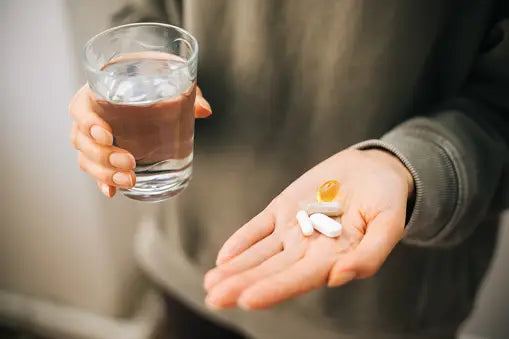

Recuperate Faster: Athletes Benefit from Whey and Leucine
Table of Contents
Recuperate Faster: Athletes Benefit from Whey and Leucine
by: Robbie Durand

-Another study found that increasing leucine levels can accelerate your anabolic gains with a lower protein meal. Researchers assessed the impact of several different combinations of different doses of whey protein and individual amino acids on changes in muscle protein synthesis, both at rest and after single bout of resistance exercise. Forty men with an average age of 21 were recruited and underwent resting and exercise conditions. One group ingested a 25-gram dose of whey (3 g leucine), the second group ingested just 6.25 g of whey protein (0.75 g leucine), a third group ingested 6.25 g whey supplemented with leucine to 5 g total leucine, and the fourth group ingested 6.25 g of whey protein supplemented with BCAAs to total 5 g of leucine. The results showed that 6.25 grams of whey protein plus a high dosage of leucine (5 g) was more anabolic than the same dose of whey with less leucine (3 g). What’s more, it was just as effective at increasing protein synthesis rates as a high-protein dose (25 g). This is good news for athletes who want to get the maximal increases in protein synthesis after exercise.
| The latest study comes out of the journal of Medicine in Sports and Science and Exercise. Researchers wanted to determine whether a low-dose protein–leucine blend consumed post-endurance exercise can increase the rate of muscle protein synthesis. 12 endurance-trained male cyclists, completed 100 minutes of high-intensity cycling exercise and then consumed either a high-protein-high-leucine (70g protein and 15g of leucine), a low-protein-low-leucine (23g protein and 5g of leucine), or a control beverage containing no protein or leucine. All beverages contained 180g of carbohydrate and 30g of fat and were provided as 4 servings over a 90-minute recovery period post-endurance exercise. The 100 min of cycling comprised a warm-up, intervals (%Wmax) of 8 x 2-min (90%), 2 x 5 min (70%), 2 x 2 min (80%) and 3 x 1 min (100%), interspersed with recovery 2-min (50%); and 8 min cool-down (40%). At the end of the study, researchers found that there was a large increase in muscle protein synthesis rate in the high-protein high- leucine group (51%) and a moderate increase in muscle protein synthesis rate in the low-protein-low-leucine group (33%) compared to the control. Ingesting 23 g of protein with 5 g of added leucine achieved near-maximal FSR after endurance exercise, an effect unlikely attributable to mTORC1-S6K-rpS6 signaling, insulin, or amino acids. |
| Rowlands, David S., et al. “Protein-Leucine Fed Dose Effects on Muscle Protein Synthesis After Endurance Exercise.” Medicine & Science in Sports & Exercise (2014). |
Kopman R, Wagenmakers AJ, Manders RJ, et al. Combined ingestion of protein and free leucine with carbohydrate increases postexercise muscle protein synthesis in vivo in male subjects. Am J Physiol Endocrinol Metab. 2005;288(4):E645-653.
Castellino, P., et al. “Effect of insulin and plasma amino acid concentrations on leucine metabolism in man. Role of substrate availability on estimates of whole body protein synthesis.” Journal of Clinical Investigation 80.6 (1987):1784.
Consider trying Infinite Labs Leucine with your Endurance Training:

















